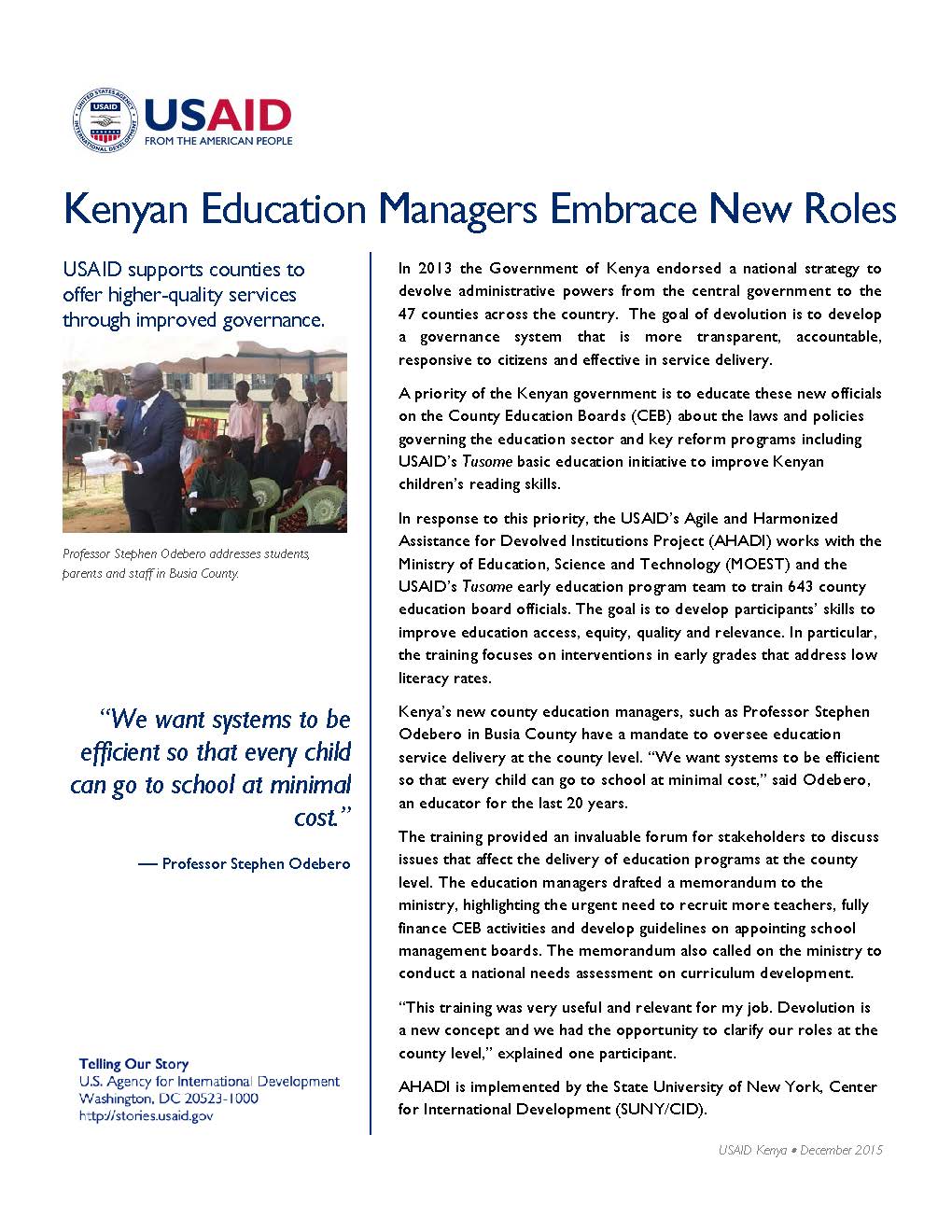In 2013 the Government of Kenya endorsed a national strategy to devolve administrative powers from the central government to the 47 counties across the country. The goal of devolution is to develop a governance system that is more transparent, accountable, responsive to citizens and effective in service delivery.
A priority of the Kenyan government is to educate these new officials on the County Education Boards (CEB) about the laws and policies governing the education sector and key reform programs including USAID’s Tusome basic education initiative to improve Kenyan children’s reading skills.
In response to this priority, the USAID’s Agile and Harmonized Assistance for Devolved Institutions Project (AHADI) works with the Ministry of Education, Science and Technology (MOEST) and the USAID’s Tusome early education program team to train 643 county education board officials. The goal is to develop participants’ skills to improve education access, equity, quality and relevance. In particular, the training focuses on interventions in early grades that address low literacy rates.
Kenya’s new county education managers, such as Professor Stephen Odebero in Busia County have a mandate to oversee education service delivery at the county level. “We want systems to be efficient so that every child can go to school at minimal cost,” said Odebero, an educator for the last 20 years.
The training provided an invaluable forum for stakeholders to discuss issues that affect the delivery of education programs at the county level. The education managers drafted a memorandum to the ministry, highlighting the urgent need to recruit more teachers, fully finance CEB activities and develop guidelines on appointing school management boards. The memorandum also called on the ministry to conduct a national needs assessment on curriculum development.
“This training was very useful and relevant for my job. Devolution is a new concept and we had the opportunity to clarify our roles at the county level,” explained one participant.
AHADI is implemented by the State University of New York, Center for International Development (SUNY/CID).








Comment
Make a general inquiry or suggest an improvement.